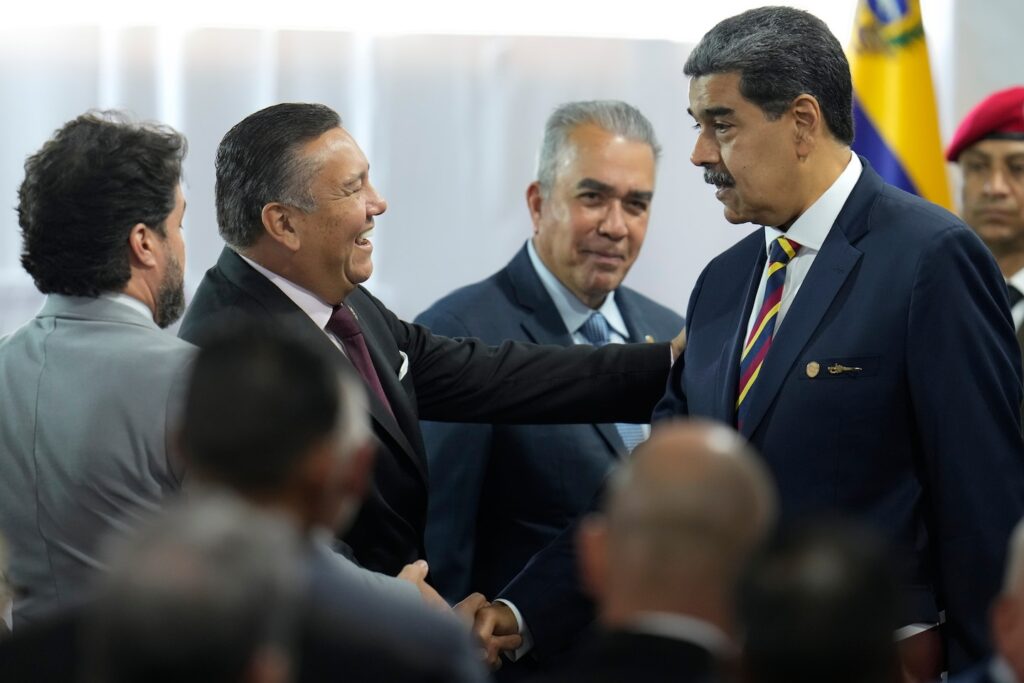“Now this is the document of the electoral arbiter. Whatever the electoral arbiter says, amen,” Maduro told reporters after the signing ceremony. “I call on all Venezuelans to support this document and to respect the arbiter of the elections, the National Electoral Council. Its words should be sacred.”
The electoral commission has long been made up of allies of the ruling party, serving as a tool of the Maduro regime, bending the rules to favor preferred candidates and blocking opposition participation.
“Any agreement cannot be imposed unilaterally” and “must emerge from a respectful dialogue between the parties,” Gonzalez said in a statement. He said the government had already violated an agreement with the opposition coalition he represents by cancelling a request to the European Union to send election observers and by intensifying “the persecution of leaders and supporters of our movement.”
The electoral commission earlier this year fulfilled one of the clauses of the agreement mentioned by Gonzalez, setting the presidential election for July 28.
In the agreement signed in Barbados, both sides pledged to work toward improving conditions for free and fair elections, but Maduro and his allies have continued to test its limits, including by blocking the candidacy of Maria Corina Machado, winner of the U.S.-backed Unity Platform coalition's presidential primary, and her chosen replacement candidate.
Machado and the coalition are now backing Gonzalez, a former diplomat.
Thursday's agreement did not mention political persecution, but candidate Benjamin Rauseo, who took the podium, said he had received the document a few hours earlier and would sign it, but wanted to “formally request” that it include guarantees of people's political rights.
He said the agreement should state that the winner “will seek broad and adequate guarantees of non-political persecution not only of current or former officials in office at the time of the election, but also of leaders of all tendencies and parties.”

